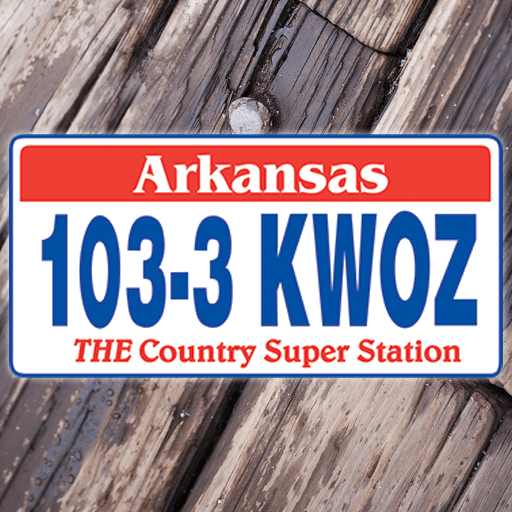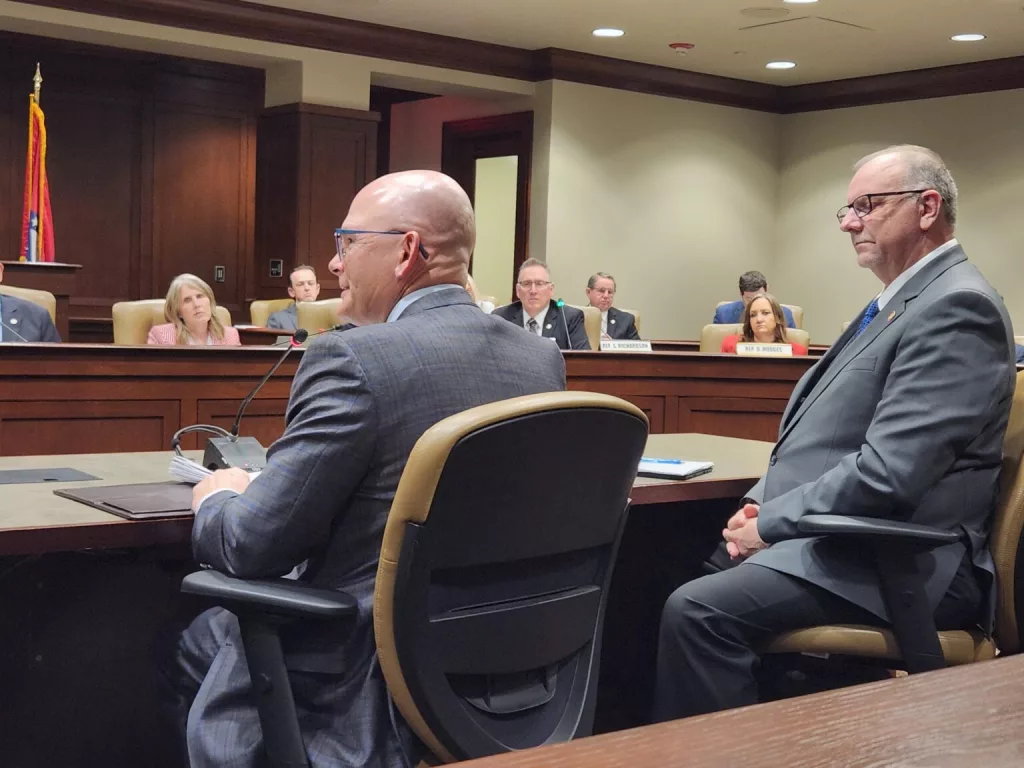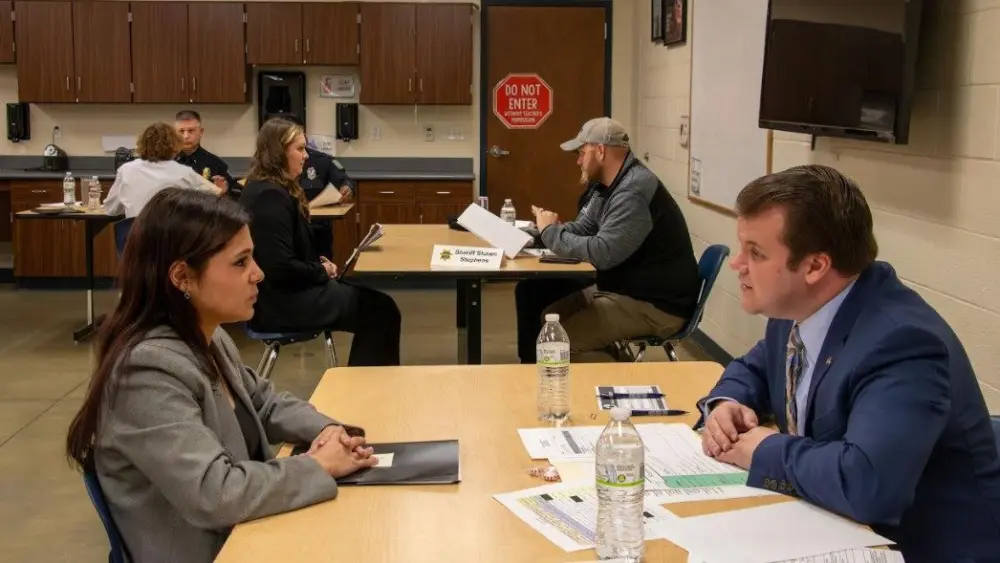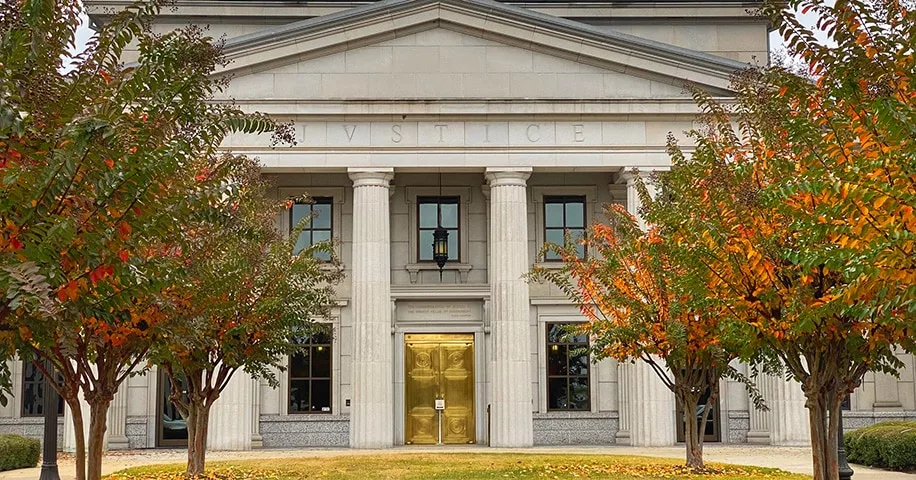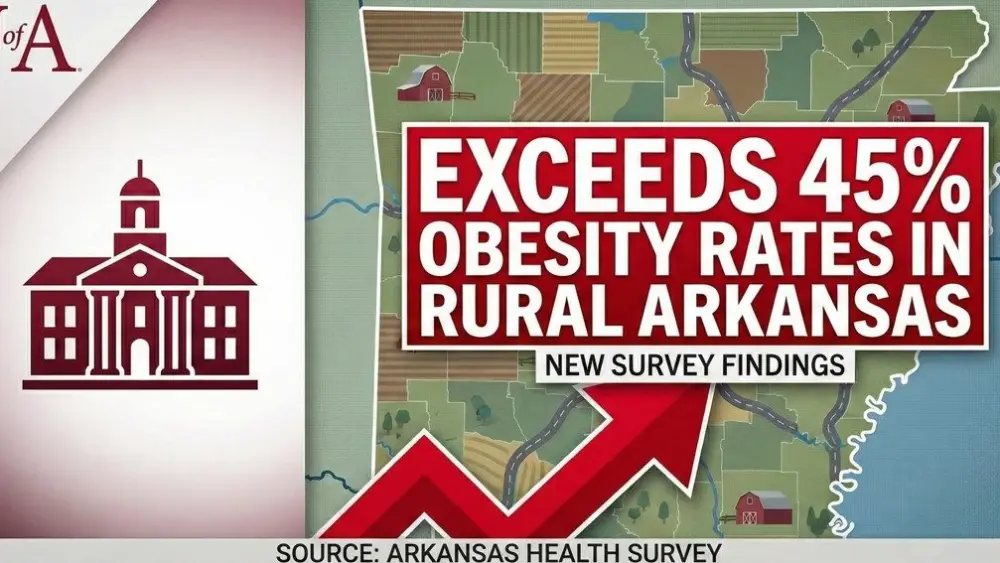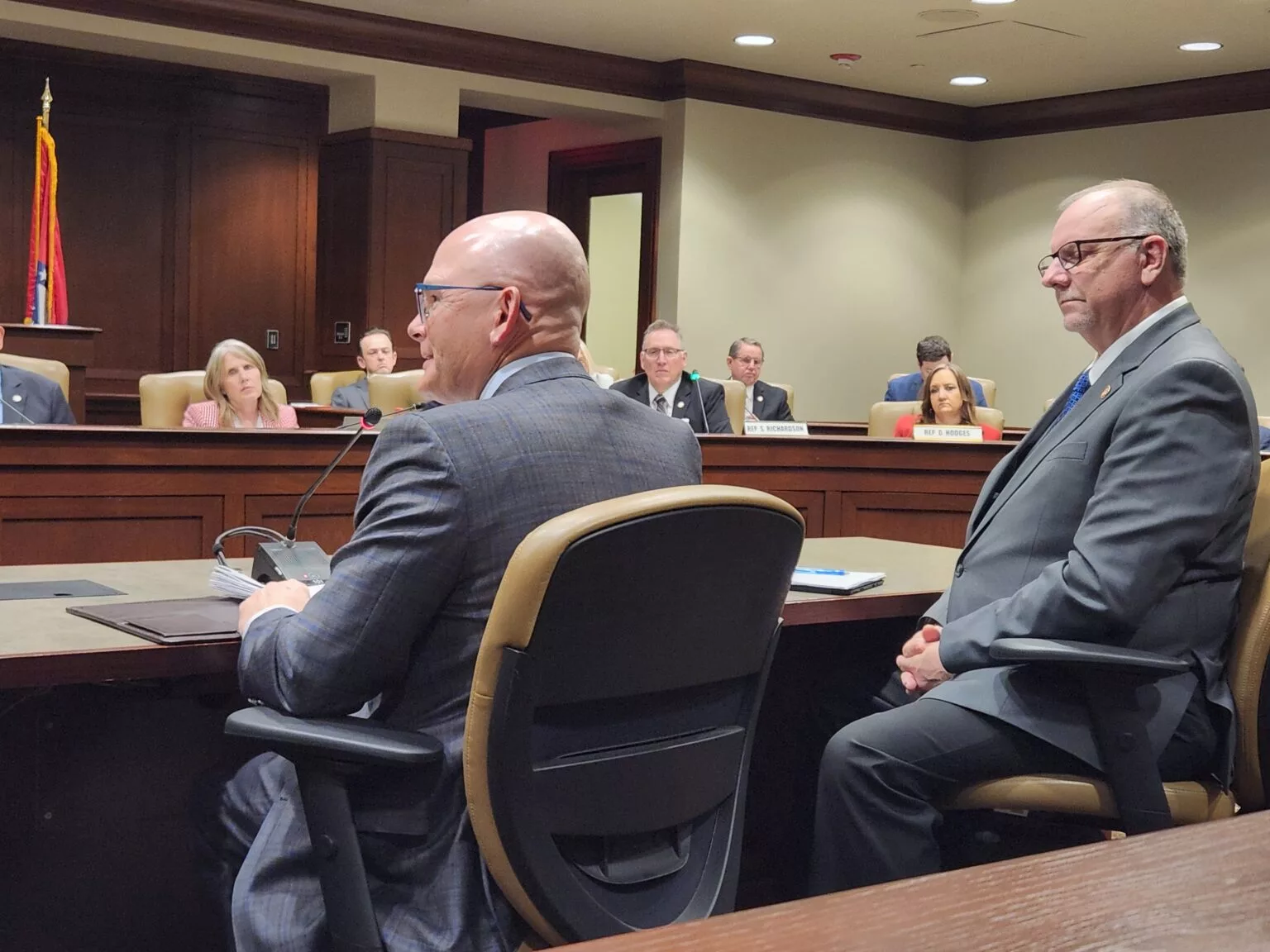
John Bethel, director of public affairs at Entergy (left), tells Arkansas lawmakers that Entergy is neutral about two bills that would regulate cryptocurrency mining operations on Tuesday, April 30, 2024. Rep. Rick McClure, R-Malvern (right), is sponsoring one of the bills. (Tess Vrbin/Arkansas Advocate)
By Tess Vrbin, Arkansas Advocate
Rep. Andrew Collins said the bills might infringe on freedom to do business
An Arkansas House committee approved two bills Tuesday that would regulate cryptocurrency mining operations in the state.
The full House will consider sending the bills to the governor’s desk Wednesday, a little over a year after Act 851 of 2023 became law and brought crypto mining to statewide attention.
Act 851 limited local governments’ ability to regulate data centers — including crypto mines, large groups of computers that harvest digital currency and are often located in rural areas because of the space they take up. Officials have expressed frustration about how quickly Act 851 moved through the Legislature and have raised concerns over the mines’ potential foreign ownership and national security risks.
Sen. Joshua Bryant, R-Rogers, is a co-sponsor of both bills that passed the House City, County and Local Affairs Committee on Tuesday.
Senate Bill 78 would place noise limits on crypto mines, prohibit them from being owned by certain foreign entities and allow local governments to pass ordinances regulating the mines. Senate Bill 79 would require crypto mines to be licensed by the state Oil and Gas Commission.
Both bills would give “a prohibited foreign-party-controlled business” exactly a year after the enactment of the policies to divest from ownership of an Arkansas crypto mine. Bryant said the language addressed “a common concern” among lawmakers and was in both bills in case one did not become law.
Rep. Andrew Collins, D-Little Rock, was the only committee member to vote against the bills. He said he saw some positive aspects of the legislation but felt that the foreign ownership language was “casting a net that is both too wide and too narrow” that infringed on the freedom to do business.
The bills would prohibit ownership of crypto mines by the list of foreign countries from which the federal International Traffic in Arms Regulations bans imports, exports, sales or a combination of the three. Collins argued that the bills would place unfair and possibly unconstitutional restrictions on citizens of those countries who live in the United States or Americans who live in those countries.
“We’re chilling foreign investment [and] probably chilling immigration because who knows who we’re going to go at next, based on what national origin?” Collins said.
Questions and concerns
The bills’ sponsors, all Republicans — Bryant, Sen. Missy Irvin of Mountain View, Rep. Rick McClure of Malvern and Rep. Jeremiah Moore of Clarendon — fielded several of the same questions lawmakers have been raising in the three weeks since the fiscal session began.
John Bethel, director of public affairs at Entergy, repeated his statement from earlier this month to the equivalent Senate committee that the utility can handle crypto miners’ usage of large amounts of electricity.
Bethel said Entergy has taken a neutral stance on the bills because the state Public Service Commission has regulatory authority if crypto operations strain local electric grids.
Public Service Commission Chief of Staff Danni Hoefer said utility companies have the primary responsibility of monitoring the stability of the electric grid.
Rep. Johnny Rye, R-Trumann, said he had concerns about crypto mines’ impact on both electrical grids and groundwater availability.
Bryant said SB 79’s oversight framework should “make sure that we are not depleting those natural resources,” especially by ensuring that several crypto mines are not reliant on the same sources of water and electricity.
“A goal of the complementary pieces of these two bills is… ideally that we’re managing that early in this endeavor in our state and not coming back in five years when we think it’s going to be a problem,” Bryant said.
There are crypto mines near DeWitt, in Moore’s district, and in the Bono community near Greenbrier, in Irvin’s district. An out-of-state entity has attempted to start a crypto mine near Harrison, which is represented by Sen. Bryan King, R-Green Forest.
King has been one of the Legislature’s most vocal proponents of cryptocurrency regulations. He voted for SB79 and against SB78 when the bills passed the Senate last week.
Irvin, Bryant and other lawmakers have said there will likely be more crypto mining legislation proposed in the 2025 legislative session.
Rep. David Whitaker, D-Fayetteville, said Tuesday that lawmakers should pass SB78 and SB79, even if they have qualms about them, in order to set a precedent for further discussions next year.
“I think we’ll have disagreements along the way — I know we will — but hearing from some constituents in the last 24 to 36 hours, I can tell you that the people who are calling me said, ‘At least get started,’” Whitaker said.
The Arkansas Advocate is a nonprofit, nonpartisan news organization dedicated to tough, fair daily reporting and investigative journalism that holds public officials accountable and focuses on the relationship between the lives of Arkansans and public policy. This service is free to readers and other news outlets.
Have a news tip or event to promote? Email White River Now at news@whiterivernow.com. Be sure to like and follow us on Facebook and Twitter. And don’t forget to download the White River Now mobile app from the Google Play Store or the Apple App Store.
Get up-to-date local and regional news/weather from the First Community Bank Newsroom on Arkansas 103.3 KWOZ every weekday morning and afternoon. White River Now updates are also aired weekday mornings on 93 KZLE, Outlaw 106.5, and Your FM 99.5.




